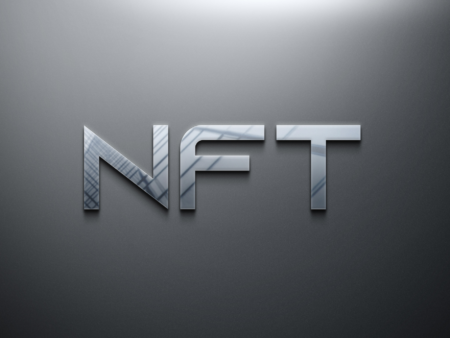With NFT wash trading, some traders exaggerate the value of their NFTs and generate false excitement.
Following significant $BLUR token airdrops and 0% fees on top NFT markets, NFT Wash Trading has stormed back into the cryptocurrency realm. For those who are unaware, it appears that NFTs are seeing greater liquidity than before. Record-breaking trade activity has been seen even on the Polygon blockchain, which has a largely nonexistent NFT culture and trading sector.
Yet, because blockchain and cryptocurrencies are transparent and immutable, wash trade is simple to identify. Regulators concentrate on NFT marketplaces as non-fungible tokens develop from basic JPEGs into real financial assets.
What is NFT wash trading, and why does it interest market participants? Is the distinction between skillful trading and market manipulation hazy?
NFT Wash Trading: What Is It?
Any exchange when a single trader acts as both the buyer and the seller in a transaction is referred to as a wash trade. Typically, this is done to increase trading volumes and produce false market data.
NFTs and virtual currencies like Bitcoin and Ethereum are not the only ones that engage in wash trading. For a variety of reasons, stocks and other conventional assets can also be washed exchanged. But how does a wash-sale actually appear?
Think about listing your cryptopunk for sale on an NFT website like Opensea or Blur. You purchase the item from yourself by using another bitcoin wallet that you manage. A trade has taken place from the perspective of an outsider. The cryptopunk and the cryptocurrency used to purchase it are still yours, though.
It appears to be a useless activity. Yet, some wallets have sold to self-financed wallets over 800 times, according to Chainalysis. Does it merit drawing the attention of the IRS and how will this assist traders?
Why Do Cryptocurrency and NFT Wash Trades Occur?
Although being morally and ethically dubious, NFT wash trading has several advantages. Brokerages and trading platforms frequently devise strategies to entice and reward users. Users can fraudulently inflate their numbers and gain bigger rewards by using wash trading.
Traders are suspected of engaging in “wash trading” even on respected cryptocurrency exchanges. According to a Forbes research, more than 50% of all Bitcoin trade volume is fraudulent.
What is the benefit to crypto and NFT traders of fabricating this volume?
Airdrops of Tokens
One of the most popular ways that blockchain systems encourage and draw users is through token airdrops. The $BLUR airdrops in February 2023 brought in over $1 million for some NFT traders and smart contract implementers.
Even while Blur maintains that wash trading volume was not included in the airdrop, NFT traders may have have attempted to game the system regardless.
The Blur airdrop reignited rumours of an upcoming OpenSea airdrop. The NFT market leader has been progressively losing market volume to Blur. Wash traders have been frantically increasing their volume on Opensea by trading fake NFTs on Polygon in preparation of an upcoming airdrop.
Over the course of a day, this greatly increased trade volume on Polygon (by over 900%). Because to its low gas costs, the Polygon network is most likely why airdrop growers chose it. Leading us to our next point, some snarky Twitter users even conjectured that the Polygon staff was responsible for the wash trade.

Generate Hype
Some traders inflate the value of their NFTs by using NFT wash trading to generate fictitious excitement. This strategy isn’t just applied to single NFTs; it has also been utilised to increase the trade volume of entire collections.
Consider the scenario where I wish to demonstrate that my ‘rare’ NFT is worth more than the collection’s floor price. I list my NFT at twice the floor price and buy it right away with another cryptocurrency wallet that I have full control over. Another trader might believe that the NFT is worth more than it should because of my devious ruse.
Trading NFTs is based on volume. As a result, a rapid increase in buys and sales in a particular collection may be a sign that a bullish statement or partnership has been made. Due to FOMO, traders may make impulsive purchases of NFTs based solely on the trading activity of others.

Several scammers take advantage of this FOMO. In an effort to create excitement, they will wash trade across their wallets in the hopes that uninformed traders will invest in a trending collection without thoroughly analysing the danger. This raises the collection’s floor price and gives existing holders who are putting sell orders exit liquidity.
Tax Loss Harvesting
Many NFT traders employ wash trading to offset their tax losses, which is less malevolent than fabricating trading volume to seduce unlucky traders. Tax loss harvesting is a clever approach to lower your tax liability despite the complexity of the subject of cryptocurrency taxation. NFT wash trading enables investors to realise a tax loss while retaining beneficial ownership of the NFT.
I can deduct 0.5 ETH as capital gains losses if I purchase an NFT for 1 ETH and sell it for 0.5 ETH. Nevertheless, if I transfer that NFT to another cryptocurrency wallet that I manage, I can still own and own the NFT while reducing my tax obligation. I may still utilise it as a PFP and receive all the benefits of ownership while paying less in taxes.
If you believe it to be too wonderful to be true, you are correct.
Is NFT Wash Trading Prohibited?
Wash trading is forbidden, according to the Commodities Exchange Act (CEA) and the Commodity Futures Trading Commission (CFTC). Manipulation of the market is what it is. Wash trading for profit is severely forbidden, and those caught doing it face harsh consequences.
The Internal Revenue Agency (IRS) enforces a wash sale rule and has its own regulations to deter wash trading. The wash sale rule, according to Investopedia, prohibits any tax deduction from being claimed on a security that has been sold at a loss then repurchased within 30 days. This includes comparable stocks and securities held by the spouse, business, or other entity of the initial seller.
In summary, NFT wash trading is prohibited and is not deductible for tax purposes. Yet, that doesn’t stop many in the crypto industry from making an effort.
However, there are additional strategies to deter NFT wash trading that target traders’ wallets, where it affects them the most.
How Can NFT Wash Trade Be Stopped?
There are various approaches to restrict NFT wash trading outside the obvious deterrents of regulation and law enforcement. The most obvious ways to stop wash traders by taking a cut of all their transactions are marketplace fees and creator royalties.
Market battles, however, are fierce in the NFT sector. NFT markets had to reduce, and in some cases completely eliminate, their marketplace fees due to competition for users.

The wider NFT community has reacted to the change in a variety of ways. On the one hand, traders are pleased with the elimination of the need for them to pay fees to middlemen like OpenSea. Moreover, 0% cost exchanges have made it possible for wash traders to freely manipulate the market. Also, many NFT collections, which depend on secondary volume as a source of income, have suffered as a result of the removal of creator royalties.
A few months before the Ethereum ecosystem caught up, Solana was the first to introduce 0% cost markets. Royalty payments on the Solana network are no longer required as of that point.
On the other hand
While NFT wash trading has some advantages for traders, it is prohibited. Regulators anticipate learning about any wash trading activity when customers file their tax returns.
Why It’s Important
Even though it is against the law, NFT wash trading happens frequently in both the NFT market and the larger crypto world. Knowing the causes and mechanisms of wash trading will enable you to spot it when it occurs in the future and shield you from unintentionally falling victim to market manipulation.
FAQs
What is cryptocurrency wash trading?
When a person acts as both the buyer and the seller of a trade in cryptocurrency and NFTs, this is known as wash trading. By purchasing them with a another cryptocurrency wallet they control, traders can wash trade their digital assets.
NFT wash trading is it permitted?
No, earning money from NFT wash trading is against the law and cannot be deducted from taxes.
Money laundering: is wash trading?
Wash trading is a method for hiding money even if it isn’t money laundering in and of itself. When traders attempt to withdraw these funds into fiat currency, regulators are likely to catch them.
How are wash trades recognised by NFTs?
Monitoring how the wallet that purchases the NFT is funded is the most typical approach to spot NFT wash trade. The wallets are probably owned by the same person or business if there is any prior connection or movement of cash between the wallet that purchases the NFT and the wallet that sells the NFT.
Is NFT income subject to taxes?
Depending on your local government body, all money derived from bitcoin or NFT trading is taxed. In the blockchain sector, using crypto tax software to manage your taxes is highly recommended.











